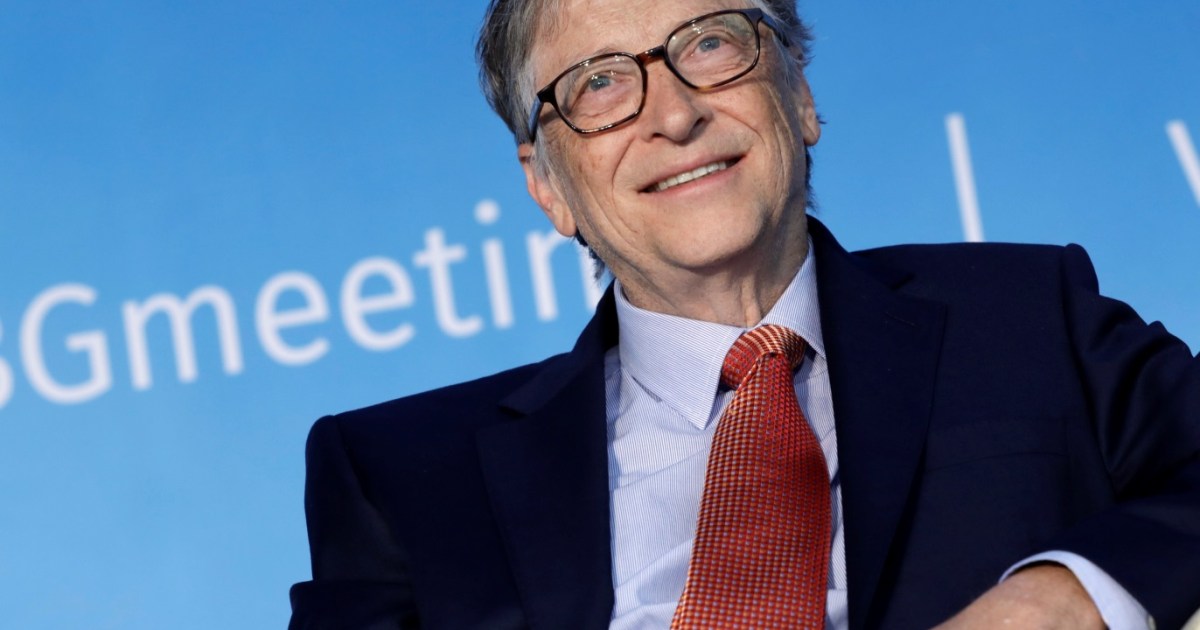American billionaire Bill Gates returned months ago to give a lecture at the Lakeside School in Seattle, on the occasion of his graduation anniversary, and to introduce him to his colleague Paul Allen, who then co-founded Microsoft. After a crowd of 1500 people prepared to hear many complex terms and mythical miraculous experiences, then Mr. Gates advises them to give priority to sleep, considering that this is what the current generation needs in the era of technology and artificial intelligence.
According to Fortune, Gates said he was affected by "Why do we sleep?" To the British scientist Matthew Walker. Then he talked about three other skills that he considered necessary for success, such as a passion for reading to satisfy the curiosity of learning, as he mentioned that he might read five books if he wanted to get an idea about something.
If you want to be like Bill Gates, read on, get some sleep. He learned daring to delegate, by giving up some tasks to new experiences. And be optimistic about failure, recalling the record of previous successes. So Gates puts four golden tips in our hands.
Sleep well
Bill Gates was not interested in taking leave until the thirties, and did not realize the importance of sleep until the age of 64, when he read the book "Why do we sleep?" Professor of Neuroscience at the University of California, Matthew Walker.
The author summarized the secret of sleep in a sentence by saying, "There is not one process in the human body that has not improved sleep." Neglecting sleep causes many common problems, such as heart disease, diabetes, obesity, low fertility and weak immune systems.
So Walker stresses in his book the commitment to sleep and wake up at a certain time, even on holidays. Besides exercising and sun exposure for at least thirty minutes on most days. While avoiding caffeine, nicotine and heavy meals, drink plenty of fluids before bed.
He also recommends taking a warm bath, darkening and cooling the room, and avoiding the blue light from mobile phones and tablets to stimulate melatonin that helps speed sleep. He warns against staying in bed for more than twenty minutes, and he is advised to leave and do something else until drowsiness comes.
Curiously read
Gates is also a voracious reader who carries a bag of books when he travels, and when he wants to learn something, he reads many books about him "to always know more than the other person he talks to". Perhaps his special sensitivity to the question prompted him for the passion for research and reading, especially since he prefers isolation and does not communicate much with others.
Therefore, it is advised to practice curiosity by "stimulating the knowledge available through books, or through podcasts and lectures available on the Internet."
He also confirms that "in the coming decades, artificial intelligence will move to unexpected limits that make the priority for a person who has self-confidence as a reader and an educator, and who has the desire to continue reading and learning." It gives you hope, shortens times for you to learn and accomplish a lot with less effort and in the shortest time.
It also gives you the advantage of having a direct conversation with the writer that may change the shape of your entire life, by taking advantage of the experiences of the greatest minds, which is invaluable. This is where the power of audiobooks lies. It helps you learn at any time or place.
Boldly empowered
Because "a lot of the founders love their work", they are reluctant to authorize others to do it, and this is how Bill Gates loved and mastered programming and did not think of assigning it to others. When his company began expanding, Gates found it difficult to abandon his duties, thinking that this might harm the business.
However, the fact that everything developed for the better without his close supervision, after he began to learn the art of delegation, he employed many experienced people, while he became "a competent person, diverting his attention to other regions, and learning new things." Gates believes that "an effective mandate stems from the recognition of your strengths and weaknesses, and makes you benefit from a lot of the experiences of others."
When you delegate part of your business, you save your time and enhance productivity by relying on a set of skills, and allowing the development of new knowledge and competencies, to perform all the important roles when needed.
Indeed, Microsoft announced last March that Bill Gates will leave his position on the Board of Directors, to devote himself to charitable work in the areas of health, development and education.
Optimistic about failure
Driven by a "very optimistic" mindset, Bill Gates describes his career as he waited a lot to overcome some difficulties "because he felt optimistic and confident that things would work." This was another key element for success.
He believes that "it is good to have blinders, but it reminds you of the achievements you have achieved many times, and it can alleviate the temporary failure to continue progress."
And he admits that "inside Microsoft, all kinds of failures existed, but at the same time there were enough successes that we could afford the risk orientation, so savoring and remembering previous successes in times of failure is a way for future victories."
"Positive emotions are what make life worth living," says optimism professor of psychology at the University of Pennsylvania, founder of Positive Psychology. .

